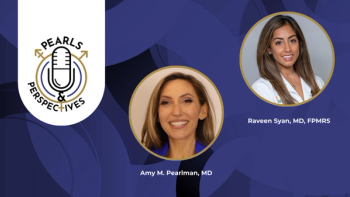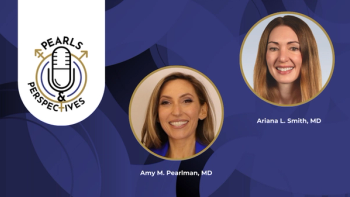
New regenerative medicine AMDC-USR treats women with recurrent SUI
In a recent study presented at the 2021 AUA Annual Meeting, Michael B. Chancellor, MD, and co-authors conducted a study that assessed the efficacy of autologous muscle derived cells for urinary sphincter repair in treating women with SUI.
Recurrent stress urinary incontinence (SUI) is a problem that many women face, especially following failed surgical intervention. This condition tends to impact their daily functioning and quality of life.
In a recent study presented at the 2021 American Urological Association Annual Meeting,¹ Michael B. Chancellor, MD, and co-authors conducted a study that assessed the efficacy of autologous muscle derived cells for urinary sphincter repair (AMDC-USR) in treating women with SUI. Chancellor is a professor and director of neurourology at Beaumont Health System and Oakland University Beaumont School of Medicine, Royal Oak, Michigan.
Could you discuss the background for this study?
There's increasing interest in regenerative medicine, and this is applied for the very first time in the urology field for the indication of stress urinary incontinence in women. It's neat looking back to see that this started off with an NIH R01 grant and now, over the years, has translated from academic to a medical device and regenerative medicine company, Cook MyoSite, that was able to run a global phase 3 trial. But the most important thing is that there's great unmet need for women with stress incontinence who have failed previous surgery. You've probably heard of all the mesh mess that's been going on over the years, so now there's a promise of regenerative medicine for women who've failed previous surgery.
What were some of the notable findings? Were any of them surprising to you and your co-authors?
I think there's 3 points, and the first is 75 women who have failed previous surgery entered this double-blind, placebo-controlled trial. I was surprised. They have failed up to 5 surgeries in the past, and the median duration is not a year later; rather, the median duration is 12.8 years after the surgery, so they've been suffering a long time. But even then, greater than 40% of women reported greater than 75% improvement in their stress incontinence episodes. And those that received placebo did not improve. But after a year, when they can get their own cells back, their improvement was similar to this other group. So, that was a very positive finding for me. And moreover, there's been [demonstrated]safety of the procedure with at least 2 years’ follow-up.
If approved by the FDA, how would AMDC-USR affect the treatment paradigm for stress urinary incontinence?
It will be an alternative. There's no drug treatment for stress incontinence, and it's such a big disease, so either you get a surgery, and everybody knows about the meshes, or you get a synthetic bulking agent. This would be the potential treatment—trying to use a person's own muscle cells to regenerate a deficient weakened sphincter muscle. This has received a breakthrough designation by the FDA. It's called RMAT, regenerative medicine advanced technology, through the 21st Century Cures Act, where they want initiatives for regenerative medicine to help with diseases that have such great unmet need.
What is the take-home message for the practicing urologist?
This is a successfully completed phase 3 trial in regenerative medicine in our field, and there's demonstrated safety and efficacy for women who have failed previous surgery, a very difficult group of patients for all of us.
Is there anything else you feel our audience should know about the findings?
It's always bothered me that there's been no treatment. What is the right thing to do for women who have had prior failed surgery? Do you do another surgery or bulking agent? Now, finally, there's a potential treatment we've found where regenerative medicine with cell therapy can be safe and effective, and it brings the promise of regenerative medicines closer to reality, closer to the urology community.
Disclosure: Study was funded by Cook MyoSite, Inc.Michael B. Chancellor M.D. conflicts: One of the inventors of the autologous muscle-derived cell (AMDC) process and has received royalty payments for the stem cell process and payments for consulting from Cook MyoSite Inc.
Reference
1. Chancellor MB, Peters KM, Benson KD, et al. An evaluation of women with persistent or recurrent stress urinary incontinence (SUI) following surgery in a double-bling, randomized, controlled trial comparing safety and efficacy of autologous muscle derived cells for urinary sphincter repair (AMDC-USR) with placebo (PBO). Paper presented at: 2021 American Urological Association Annual Meeting; September 10-13, 2021; virtual. Abstract PD06-02.
Newsletter
Stay current with the latest urology news and practice-changing insights — sign up now for the essential updates every urologist needs.





